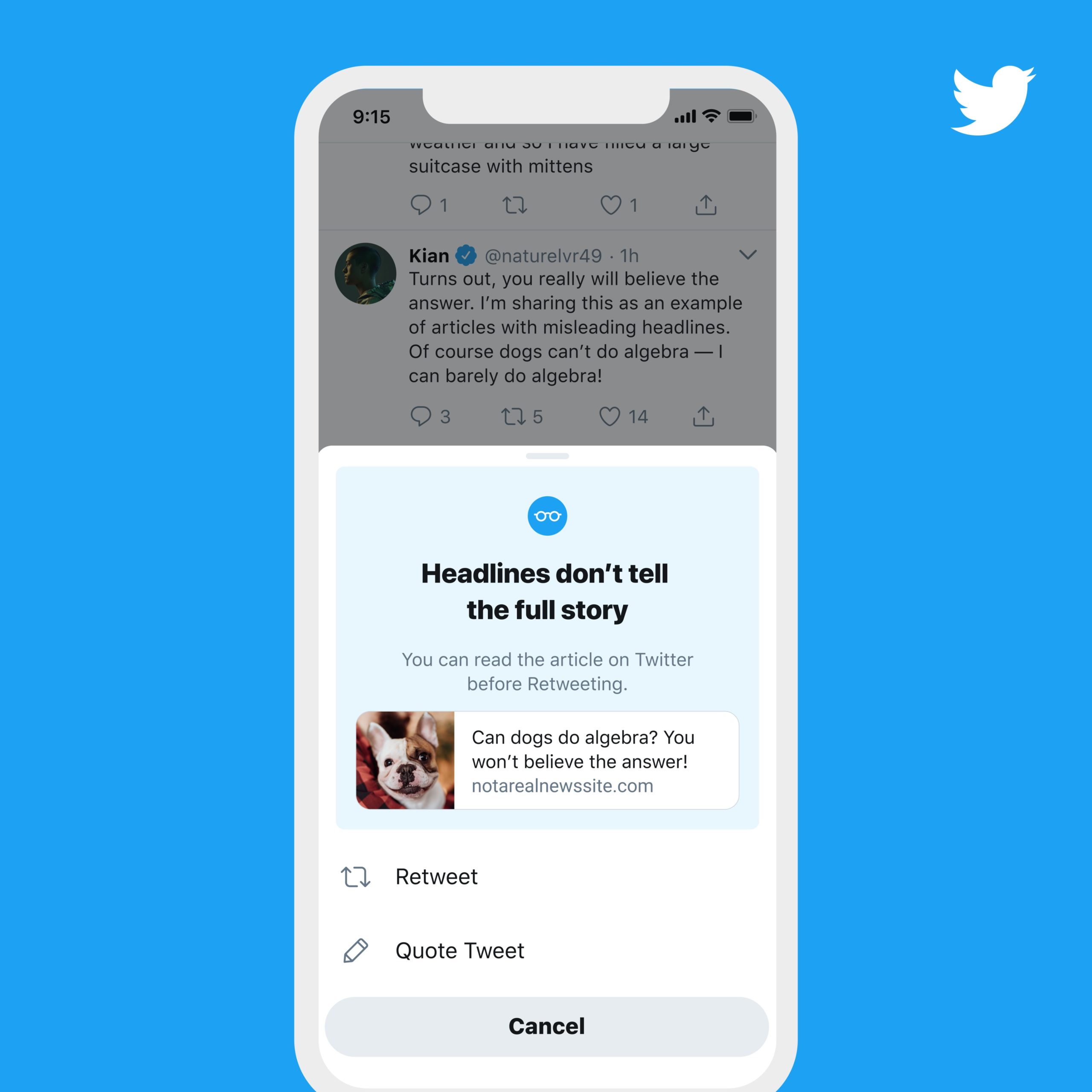A prompt being tested by Twitter which asked users if they wanted to read an article before they retweet it has been so successful that the company is now rolling the update out on the platform at large “very soon”.
The takeaways:
- Back in June, Twitter announced that they were testing a feature asking people if they wanted to read an article before sharing it. This feature is now being rolled out globally.
- “To help promote informed discussion, we’re testing a new prompt on Android,” they said. “When you Retweet an article that you haven’t opened on Twitter, we may ask if you’d like to open it first.”
- The prompt doesn’t stop a user from resharing the link, or label that they haven’t read it. The aim is to make users slow down and read the content before they share, rather than instinctively retweeting.
The results: Twitter posted a series of tweets with updates from the test.
- More reading – people open articles 40% more often after seeing the prompt.
- More informed Tweeting – people opening articles before retweeting increased by 33%.
- Some people didn’t end up retweeting after opening the article, “which is fine. Some Tweets are best left in drafts,” they commented.
Point of note:
A proportion of people will read content elsewhere before tweeting or retweeting it. As a result, some may see this prompt and dismiss it.
- Twitter also says that they will make the prompt smaller after a user has seen it once, “because we get that you get it.”
It’s not the first time platforms have experimented with prompts. Both Instagram and Twitter are testing prompts that warn users if their comments or content contains ‘harmful language’. The aim is to give users a chance to revise and rethink what they are saying.
- Introducing friction deliberately to the user experience might seem counterintuitive. After all, Twitter and other social platforms are built around speed and ease of use.
- But the hope is that small product changes like nudges and prompts will help shift toxic and reactionary behavior, rather than huge changes in the way the platforms work.










